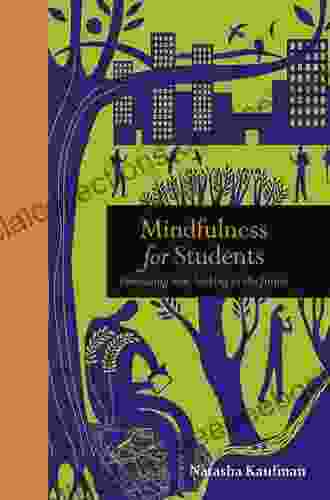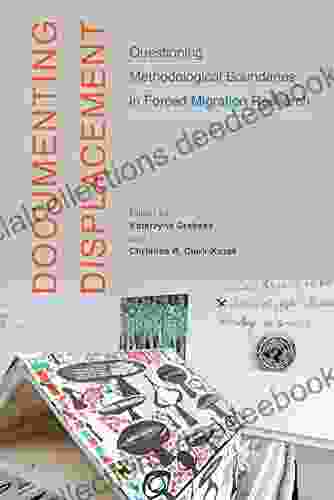Questioning Methodological Boundaries In Forced Migration Research: A Comprehensive Exploration

Forced migration is a complex and multifaceted issue that has a profound impact on individuals, families, and communities around the world. Researchers have employed a wide range of methodological approaches to study forced migration, but there is ongoing debate about the most effective and appropriate methods.
In this article, we will explore the methodological boundaries of forced migration research, examining the advantages and limitations of different approaches. We will also discuss the ethical considerations that researchers must take into account when conducting forced migration research.
5 out of 5
| Language | : | English |
| File size | : | 5482 KB |
| Text-to-Speech | : | Enabled |
| Screen Reader | : | Supported |
| Enhanced typesetting | : | Enabled |
| Word Wise | : | Enabled |
| Print length | : | 412 pages |
| Lending | : | Enabled |
Qualitative vs. Quantitative Methods
One of the most fundamental distinctions in forced migration research is between qualitative and quantitative methods. Qualitative methods focus on understanding the subjective experiences of individuals and communities, while quantitative methods focus on measuring and analyzing data in order to make generalizations about a population.
Qualitative methods are often used to explore the lived experiences of forced migrants, their coping mechanisms, and their resilience. These methods can provide rich and detailed insights into the human dimension of forced migration, but they can also be difficult to generalize to a wider population.
Quantitative methods are often used to measure the prevalence of forced migration, its causes and consequences, and the effectiveness of different interventions. These methods can provide a more objective and generalizable understanding of forced migration, but they can also be less sensitive to the individual experiences of forced migrants.
Participatory vs. Non-Participatory Methods
Another important distinction in forced migration research is between participatory and non-participatory methods. Participatory methods involve actively engaging forced migrants in the research process, while non-participatory methods do not.
Participatory methods can help to ensure that the research is relevant to the needs of forced migrants and that their voices are heard. These methods can also empower forced migrants and give them a sense of ownership over the research process.
Non-participatory methods can be more efficient and less time-consuming than participatory methods. However, they can also be less inclusive and may not be as effective in capturing the perspectives of forced migrants.
Ethical Considerations
Researchers who conduct forced migration research must take into account a number of ethical considerations, including:
- Informed consent: Forced migrants should be given full information about the research project and their rights before they agree to participate.
- Confidentiality: Researchers must protect the confidentiality of forced migrants' information.
- Do no harm: Researchers must do everything possible to avoid causing harm to forced migrants.
- Respect for culture: Researchers must be respectful of the culture and traditions of forced migrants.
The methodological boundaries of forced migration research are complex and ever-evolving. There is no one-size-fits-all approach to forced migration research, and the most appropriate methods will vary depending on the specific research questions being asked. However, by carefully considering the advantages and limitations of different methodological approaches, and by taking into account the ethical considerations involved, researchers can conduct high-quality forced migration research that is relevant, inclusive, and respectful of the experiences of forced migrants.
References
- Barnett, M. (2003). The ethics of humanitarian intervention. Cambridge: Cambridge University Press.
- Black, R. (2011). Forced migration and human rights. London: Routledge.
- de Jong, J., & Scheffer, H. (Eds.). (2019). Forced migration and global health: Ethical and policy dilemmas. London: Routledge.
- Faist, T. (2018). The Routledge handbook of forced migration. London: Routledge.
- Fiddian-Qasmiyeh, E., &c Johnston, H. (Eds.). (2019). Forced migration and the challenges of climate change. London: Routledge.
5 out of 5
| Language | : | English |
| File size | : | 5482 KB |
| Text-to-Speech | : | Enabled |
| Screen Reader | : | Supported |
| Enhanced typesetting | : | Enabled |
| Word Wise | : | Enabled |
| Print length | : | 412 pages |
| Lending | : | Enabled |
Do you want to contribute by writing guest posts on this blog?
Please contact us and send us a resume of previous articles that you have written.
 Book
Book Novel
Novel Page
Page Story
Story Genre
Genre Library
Library Magazine
Magazine Newspaper
Newspaper Sentence
Sentence Bookmark
Bookmark Glossary
Glossary Preface
Preface Synopsis
Synopsis Annotation
Annotation Footnote
Footnote Codex
Codex Tome
Tome Bestseller
Bestseller Classics
Classics Library card
Library card Narrative
Narrative Reference
Reference Encyclopedia
Encyclopedia Dictionary
Dictionary Thesaurus
Thesaurus Narrator
Narrator Resolution
Resolution Librarian
Librarian Borrowing
Borrowing Stacks
Stacks Periodicals
Periodicals Academic
Academic Journals
Journals Reading Room
Reading Room Interlibrary
Interlibrary Dissertation
Dissertation Storytelling
Storytelling Awards
Awards Theory
Theory Textbooks
Textbooks Julian Roche
Julian Roche Guobin Yang
Guobin Yang Kelly Kazek
Kelly Kazek Genna Sapia Ruffin
Genna Sapia Ruffin Michael Dennis
Michael Dennis Cory Eckert
Cory Eckert Alon Shulman
Alon Shulman Denise K Loock
Denise K Loock Hannah Lalhlanpuii
Hannah Lalhlanpuii C L Francisco
C L Francisco Preslav Nakov
Preslav Nakov Rithika Manchala
Rithika Manchala Terence Daintith
Terence Daintith Bryan Washington
Bryan Washington Leendert M Huisman
Leendert M Huisman Tony Frontier
Tony Frontier Samanta Schweblin
Samanta Schweblin Michael Kazin
Michael Kazin Ian Graham
Ian Graham Adam Green
Adam Green
Light bulbAdvertise smarter! Our strategic ad space ensures maximum exposure. Reserve your spot today!
 Ira CoxFollow ·5.4k
Ira CoxFollow ·5.4k Christian BarnesFollow ·19.9k
Christian BarnesFollow ·19.9k Jorge AmadoFollow ·14.2k
Jorge AmadoFollow ·14.2k Ignacio HayesFollow ·3.6k
Ignacio HayesFollow ·3.6k Cormac McCarthyFollow ·16.2k
Cormac McCarthyFollow ·16.2k Sidney CoxFollow ·5.4k
Sidney CoxFollow ·5.4k Peter CarterFollow ·2.9k
Peter CarterFollow ·2.9k Guy PowellFollow ·7.7k
Guy PowellFollow ·7.7k

 Andy Hayes
Andy HayesEmbracing Now: Embark on a Mindfulness Journey for a...
In a world...

 Heath Powell
Heath Powell100 Hymns for Violin and Guitar: A Comprehensive Guide to...
The violin and...

 Floyd Richardson
Floyd RichardsonBark In The Park: Poems For Dog Lovers
Dogs are our best...

 Douglas Adams
Douglas AdamsThe Barter Crusade: A Journey into the Realm of Exchange...
In a world driven by monetary transactions,...

 Nathaniel Hawthorne
Nathaniel HawthorneInsight Guides Explore Nice & the French Riviera...
Prepare to embark on an unforgettable journey...

 Carlos Fuentes
Carlos FuentesThe Ultimate Practical Guide to Percussion: Exploring the...
Embark on a journey into the enchanting...
5 out of 5
| Language | : | English |
| File size | : | 5482 KB |
| Text-to-Speech | : | Enabled |
| Screen Reader | : | Supported |
| Enhanced typesetting | : | Enabled |
| Word Wise | : | Enabled |
| Print length | : | 412 pages |
| Lending | : | Enabled |












